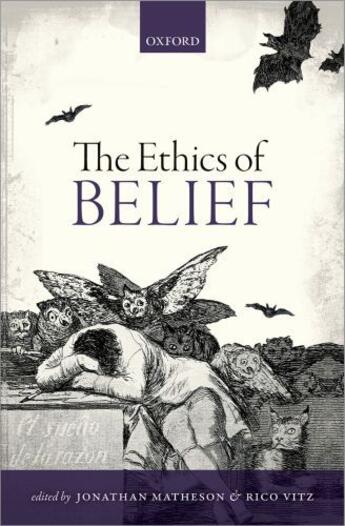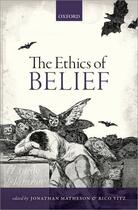-
Nombre de pages : (-)
-
Collection :
(-)
-
Genre :
(-)
-
Thème :
Non attribué
-
Prix littéraire(s) :
(-)
Résumé:
How do people form beliefs, and how should they do so? This book presents seventeen new essays on these questions, drawing together perspectives from philosophy and psychology. The first section explores the ethics of belief from an individualistic framework. It begins by examining the question... Voir plus
How do people form beliefs, and how should they do so? This book presents seventeen new essays on these questions, drawing together perspectives from philosophy and psychology. The first section explores the ethics of belief from an individualistic framework. It begins by examining the question of doxastic voluntarism-i.e., the extent to which people have control over their beliefs. It then shifts to focusing on the kinds of character that epistemic agents should cultivate, what their epistemic ends ought to be, and the way in which these issues are related to other traditional questions in epistemology. The section concludes by examining questions of epistemic value, of whether knowledge is in some sense primary, and of whether the ethics of belief falls within the domain of epistemology or ethics.
The second section extends this traditional debate to issues concerning the social dimensions of belief formation. It begins with essays by social psychologists discussing the past three decades of research in 'lay epistemics'. It continues by examining Humean, Kantian, and feminist insights into the social aspects of belief formation, as well as questions concerning the ethics of assertion. The section concludes with a series of essays examining a topic that is currently of great interest to epistemologists: namely, the significance of peer disagreement.
Donner votre avis















